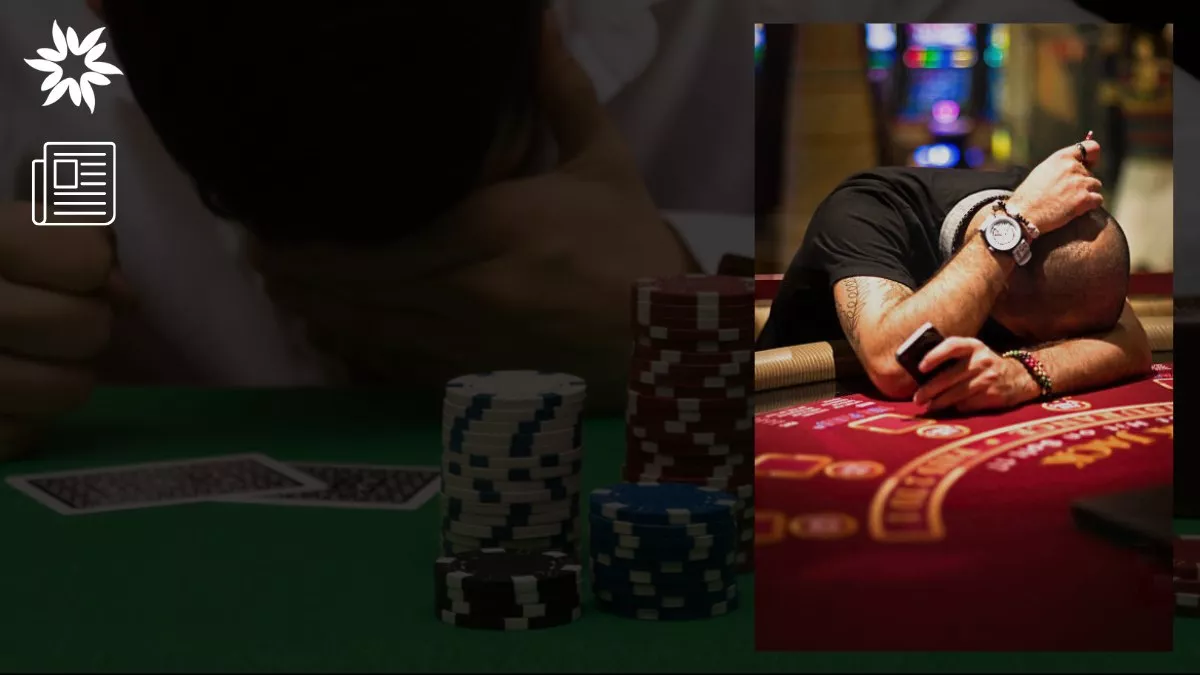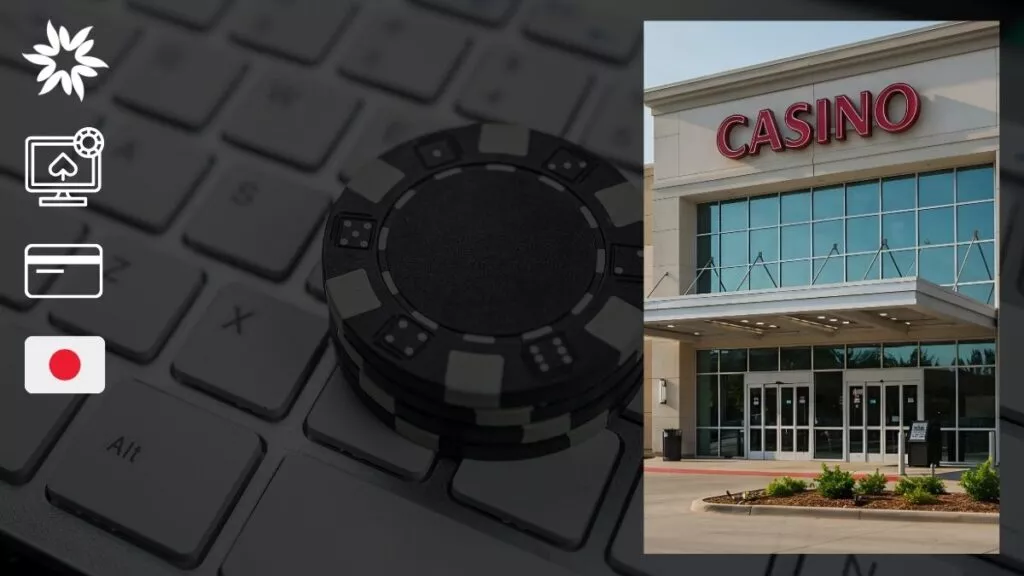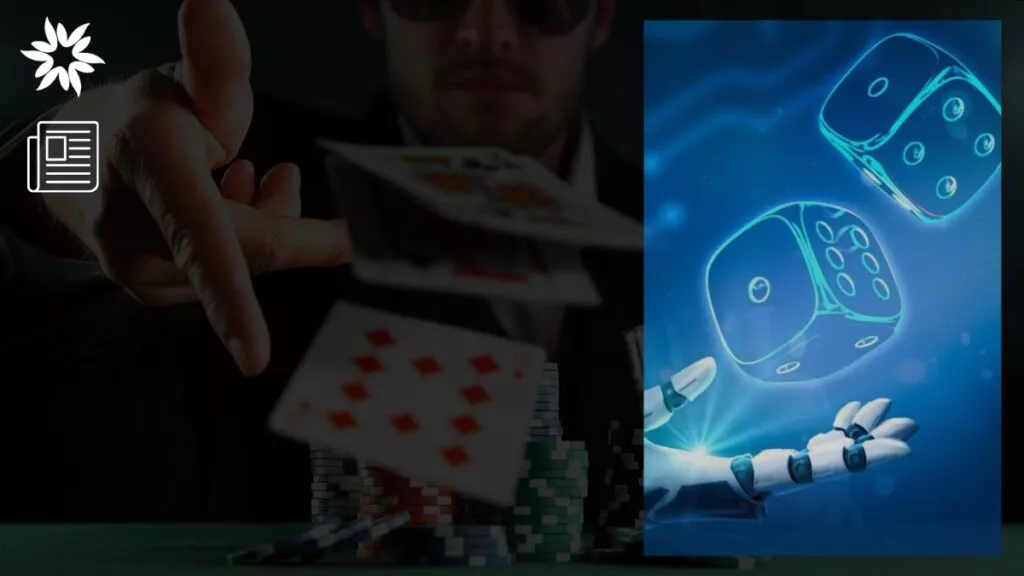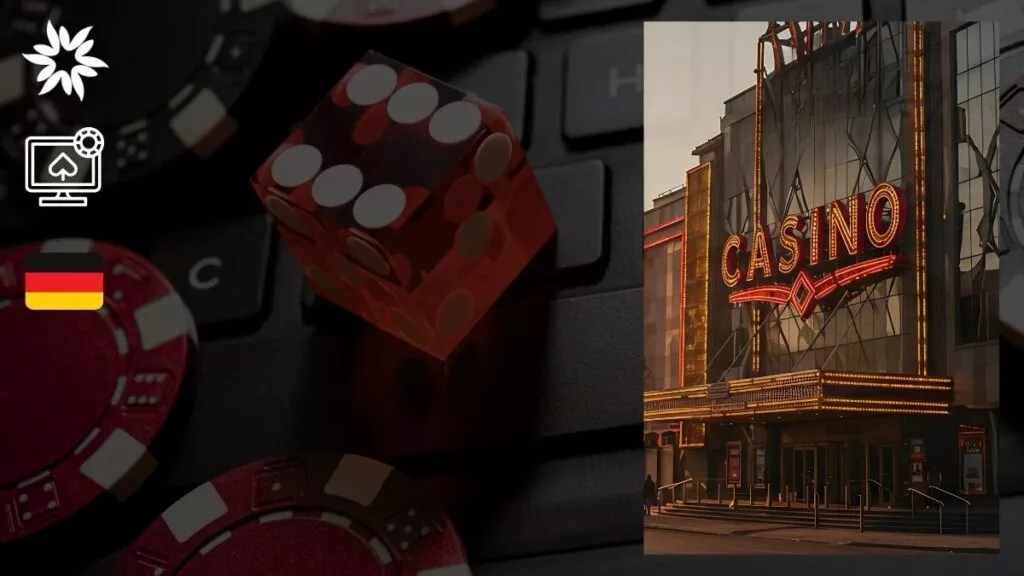Gambling addiction and depression often go hand in hand, but which one triggers the other remains a mystery.
Experts point out that some individuals fall into depression after experiencing the consequences of gambling, while others start gambling as a way to deal with pre-existing mental health issues.
The real question is, does gambling lead to depression, or is it the other way around?
Let’s uncover the truth.
What is a Gambling Addiction?
Also known as compulsive gambling or problem gambling, gambling disorder occurs when a person cannot control their urge to gamble despite the negative consequences.
Whether it’s casino games, sports betting, lotteries, slot machines, or scratch cards, it often starts with harmless betting or casual games.
Over time, the behavior becomes more frequent and intense.
While some gamblers become addicts due to the thrill and excitement of winning, others turn to gambling in an attempt to pay off debts or recover past losses.
The American Psychiatric Association’s Diagnostic and Statistical Manual of Mental Disorders (DSM-5) classifies gambling disorder as a behavioral addiction, which is similar to substance use disorder.
Gambling disorder can significantly alter brain chemistry, leading to compulsive gambling behavior that is hard to control. This condition involves features of both withdrawal (when a person tries to stop gambling and experiences negative effects like anger and irritability) and tolerance (needing to gamble more to get some sort of satisfaction and happiness).
Signs of Gambling Disorder
While there are no definitive signs, the following behaviors are common in those with gambling disorder:
- Constantly thinking about gambling, planning the next bet, or remembering past wins/losses
- Betting larger amounts of money over time to achieve the same level of satisfaction
- Unsuccessful efforts to cut down or stop gambling
- Feeling anxious, upset, or even angry when not gambling
- Borrowing money or going into debt to fund gambling activities
- Neglecting work and relationships due to gambling
- Downplaying or lying to your loved ones about gambling
What Is Depression?
The World Health Organization (WHO) explains depression as a mental health disorder that causes a persistent feeling of sadness, ultimately changing your eating, sleeping, and thinking patterns.
When a person is depressed, it often leads to reckless behaviors such as substance abuse or high-risk activities like gambling to cope with the overwhelming emotions.
Symptoms of Depression
Some depressive symptoms include:
- Persistent sadness, emptiness, or feelings of hopelessness
- Loss of interest in activities
- Excessive guilt or low self-esteem
- Difficulty concentrating, making decisions, or remembering details
- Changes in appetite, either eating too much or too little
- Weight fluctuation
- Sleeping too much or developing insomnia
- Thoughts of death or suicide
How the Brain Perceives Gambling and Depression
Your brain is a complex system that reacts to everything you do, from enjoying a great meal to checking your phone for notifications.
In these moments, it releases dopamine, a neurotransmitter that causes a feeling of pleasure and encourages you to repeat those feel-good behaviors.
But like any system, it can be manipulated — and gambling exploits it masterfully.
When you gamble, your brain gets a dopamine hit, creating feelings of excitement and reward. This can become addictive, especially when linked to the hope of hitting a jackpot. Even the near misses can trigger just as much dopamine as actual wins, tricking the brain into thinking that success is just around the corner.
Over time, your brain’s reward system becomes overstimulated. You start needing bigger risks, higher stakes, and more significant bets. It’s like chasing a high that’s always just out of reach.
Unfortunately, when you don’t win, the dopamine rush quickly fades, leaving behind feelings of frustration, emptiness, and regret. The financial loss can also trigger severe depressive episodes, leading to stress, anxiety, and sometimes even destructive behavior.
When you’re struggling with depression, the brain’s reward system is often operating at a deficit. Depression disrupts the natural balance of dopamine, making it harder to experience all the feelings.
At that time, gambling can seem like a viable escape for those suffering from depression. It allows them to experience those fleeting moments of excitement, even if it’s only temporary.
Does Gambling Cause Depression or Depression Lead to Gambling?
Research shows that gambling addiction and depression frequently overlap.
It creates a vicious cycle where neither condition is the clear cause of the other. A pathological gambler might feel depressed due to excessive debt, broken relationships, or mounting guilt from their actions.
On the flip side, someone struggling with a mood disorder or depression may turn to gambling to feel happy or reduce overwhelming sadness. While gambling can momentarily numb these feelings, it can also lead to bigger problems that might be harder to overcome.
Tips for Preventing Gambling in Depressed Individuals
The following tips will help reduce the risk of gambling while you manage depression:
- Talk to a therapist or counselor who can help address both the depression and the gambling urges. Cognitive Behavioral Therapy (CBT) or group counseling is effective for treating both conditions.
- Avoid easy access to money. Set strict spending limits and avoid carrying credit cards or large sums of cash that might tempt you.
- Instead of gambling, try things like exercise, drawing, or talking to a friend when you’re feeling down.
- Since isolation can lead to depressive thoughts, consider joining a support group for people dealing with gambling or depression. They’ll understand and help you stay on track.
- Stay away from places or situations that might tempt you to gamble, like casinos or online gambling sites. If you still can’t stop, consider putting yourself on a self-exclusion list until you’re in a better place mentally.
So, Which Came First?
The question of whether gambling addiction leads to depression or vice versa isn’t an easy one to answer.
In fact, experts agree that both conditions might influence each other, making it hard to pin down a clear cause-and-effect relationship.
For some, gambling may trigger depression. For others, depression may be the root cause of gambling. Since it’s far from a one-size-fits-all scenario, it’s important to look at individual cases and seek professional help before it’s too late.








